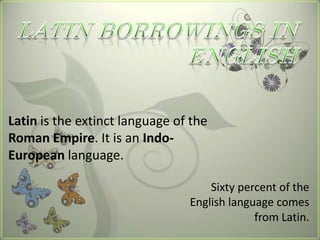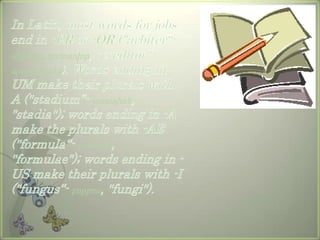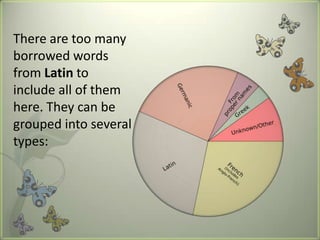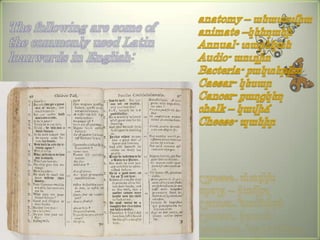Elen list of english words of french origin
- 1. į┐š½šĮšĪš┤šĄšĪš»šĪšĄš½šČ š░šĪšĘšŠšźš┐šŠšĖųéš®šĄšĖųéšČ įĄšĮ šäš»ųĆš┐š╣šĄšĪšČ įĘš¼šźšČšČ šźš┤ 9-2 šżšĪšĮšĪųĆšĪšČš½ųü: į╗š┤ š©šČš┐ųĆšĪš« šŻšĖųĆš«šĖųéšČšźšĖųéš®šĄšĖųéšČš© ųģš┐šĪųĆ š¼šźš”šĖųé-š®šĪųĆšŻš┤šĪšČš╣šĖųéš®šĄšĖųéšČšČ š¦: įĄšĮ š©šČš┐ųĆšźš¼ šźš┤ šĪšĄšĮ šŻšĖųĆš«šĖųéšČšźšĖųéš®šĄšĖųéšČš©, šĖųĆšĖšŠš░šźš┐ųć šĘšĪš┐ šźš┤ šĮš½ųĆšĖųéš┤ šĪšČšŻš¼šźųĆšźšČ ųć ųüšĪšČš»šĪšČšĖųéš┤ š½š┤šĪšČšĪš¼ š│š½šĘš┐ šČšĪšŁšĪšżšĪšĮšĖųéš®šĄšĖųéšČ š»šĪš”š┤šźš¼šĖųé š▒ųćš©:
- 2. šäšźšČųä šĪšČšŻš¼šźųĆšźšČš½ųü š®šĪųĆšŻš┤šĪšČšźš¼ šźšČųä šĘšĪš┐ šČšĄšĖųéš®šźųĆ` ┬½į┐š¼šĖšČšĪšŠšĖųĆšĖųéš┤┬╗,┬½šōšĪšĮš┐šźųĆ šĪšČšŻš¼šźųĆšźšČš½ š┤šĪšĮš½šČ┬╗,┬½šåšĄšĖųé šģšĖųĆųä┬╗ųć šĪšĄš¼šČ: į▒šĄšĮ šČšĄšĖųéš®šźųĆš© įĖšČš»šźųĆ į┐šĪųĆš½šČšźš½ š░šźš┐ š┤šĘšĪš»šźš¼ šźšČųä ųć šżųĆšźš¼ š»šĪšĄųä: įĄšŠ š»šĪšČ šĘšĪš┐ šČšĄšĖųéš®šźųĆ, šĖųĆšĖšČųä š░šĪšĄšźųĆšźšČš½ųü šźšČųä š®šĪųĆšŻš┤šĪšČšźš¼ šĪšČšŻš¼šźųĆšźšČ ųć šżųĆšźš¼ šźšČųä š»šĪšĄųäšĖųéš┤: Is there love at first sight? Coffee and Health Alexander Macedonian To be self-assured šåšĪųć š»šĪųĆšżšĪųüšźš¼ šźšČųä šĘšĪš┐ š┐šźųäšĮš┐šźųĆ` šŻųĆųäšźųĆš½ųü, š»šĪšĄųäš½ųü: į╗šČš▒ šĘšĪš┐ š¦ šżšĖųéųĆ šŻšĪš¼š½šĮ šĪšĄšĮ šŻšĖųĆš«šĖųéšČšźųĆšĖųéš®šĄšĖųéšČš©:
- 3. List of English words of French origin
- 4. ’é« A great number of words of French origin have entered the English language to the extent that many Latin words have come to the English language.
- 5. ’é« English contains many words of French origin, such as art, collage, competition, force, machine, police, publicity, role, table, and many other Anglicized French words. According to different sources, around 30% of all English words have a French origin. This fact suggests that 80,000 words should appear in this list.
- 6. ’é«Law and government ’é«Church ’é«Nobility: ’é«Military ’é«Cooking ’é«Culture and luxury goods ’é«Other
- 7. Law and government ’é«Country šźųĆš»š½ųĆ , court- šżšĪš┐šĪųĆšĪšČ , crime-š░šĪšČšŻšĪšČųä , government -š»šĪš╝šĪšŠšĪųĆšĖųéš®šĄšĖųéšČ, judge-šżšĪš┐šĪšŠšĖųĆ, noble-šĪš”šČšŠšĪš»šĪšČ, parliament- š║šĪš╝š¼šĪš┤šźšČš┐, prison- šóšĪšČš┐, state- šČšĪš░šĪšČšŻ , š║šźš┐šĖųéš®šĄšĖųéšČ ,
- 8. Church ’é« chaplain- š»šĪš║šźš¼š¼šĪšČ, clergy- š░šĖšŻšźšŠšĖųĆšĪš»šĪšČšĖųéš®šĄšĖųéšČ, friar- šŠšĪšČšĪš»šĪšČ, prayer- šĪš▓šĖš®ųä,religion-š»ųĆšĖšČ, saint- šĮšĖųéųĆšó,
- 9. Nobility: ’é« Baron-šóšĪųĆšĖšČ, baroness- šóšĪųĆšĖšČšĖųéš░š½; count- š»šĖš┤šĮ, countess-š»šĖš┤šĮšĖųéš░š½; duke- šżšĖųéųäšĮ, duchess- šżųäšĮšĖųéš░š½, prince- šĪųĆųäšĪšĄšĪš”šČ, princess- šĪųĆųäšĪšĄšĪšżšĖųéšĮš┐ųĆ ,
- 10. Military ’é« Army- šóšĪšČšĪš», battle- š│šĪš»šĪš┐šĪš┤šĪųĆš┐, captain- š»šĪš║š½š┐šĪšČ,enemy- š®šĘšČšĪš┤š½, soldier- š”š½šČšŠšĖųĆ,
- 11. Cooking ’é« Beef-š┐šĪšŠšĪųĆš½ š┤š½šĮ, boil- šźųāšźš¼, dine- š│šĪšĘšźš¼, fry- š┐šĪš║šĪš»šźš¼, mutton- šĖš╣šŁšĪųĆš½ š┤š½šĮ, roast- šŁšĖųĆšĖšŠšĪš«, salmon- šĮšĪš▓š┤šĖšČ,
- 12. Culture and luxury goods ’é« Art-šĪųĆšŠšźšĮš┐, artist-šČš»šĪųĆš½š╣, painting-šŻšźš▓šĪšČš»šĪųĆš╣šĖųéš®šĄšĖųéšČ, sculpture- ųäšĪšČšżšĪš», ballet- šóšĪš¼šźš┐,bracelet- šĪš║šĪųĆšĪšČš╗šĪšČ, dance- š║šĪųĆšźš¼, diamond- šĪšżšĪš┤šĪšČšż, fur- š┤šĖųĆš®š½, fashion- šČšĖųĆšĪš▒šźšŠšĖųéš®šĄšĖųéšČ, ruby-šĮšĖųéš┐šĪš»,
- 13. Other ’é« Adventure- šĪųĆš»šĪš«, courage- ųäšĪš╗šĖųéš®šĄšĖųéšČ, dignity- šĪųĆš¬šĪšČšĪš║šĪš┐šŠšĖųéš®šĄšĖųéšČ, ’é« Feign- š»šźš▓š«šźš¼, fruit- š┤š½ųĆšŻ, letter- šČšĪš┤šĪš», š┐šĪš╝, literature- šŻųĆšĪš»šĪšČšĖųéš®šĄšĖųéšČ, magic- š»šĪšŁšĪųĆšżšĖųéš®šĄšĖųéšČ, male- š┐š▓šĪš┤šĪųĆšż, female- š»š½šČ, mirror-š░šĪšĄšźš¼š½, ’é« Pilgrimage- šĖų隣š┐šĪšŻšČšĪųüšĖųéš®šĄšĖųéšČ, proud- š░š║šĪųĆš┐, question- š░šĪųĆųü, action- šŻšĖųĆš«šĖš▓šĖųéš®šĄšĖųéšČ , address- š░šĪšĮųüšź, caf├®- šĮųĆš│šĪųĆšĪšČ, card -ųäšĪųĆš┐ (fr. carte), career - š»šĪųĆš½šźųĆšĪ(fr. carri├©re), future- šĪš║šĪšŻšĪ (Old fr. futur), garage- šŻšĪųĆšĪš¬, crayon- šŻšĖųéšČšĪšŠšĖųĆ š┤šĪš┐š½š┐, December- šżšźš»š┐šźš┤šóšźųĆ
- 14. Also Middle English French loans: a huge number of words in age, -ance/- ence, -ant/-ent, -ity, -ment, -tion, con-, de-, and pre-.
- 15. ’é« Sometimes it's hard to tell whether a given word came from French or whether it was taken straight from Latin. Words for which this difficulty occurs are those in which there were no special sound and/or spelling changes of the sort that distinguished French from Latin. pupil -Elen Mkrtchyan
- 16. Arabic loanwords in English are words acquired directly from Arabic or else indirectly by passing from Arabic into other languages and then into English. Some of these Arabic loanwords are not of ancient Arabic origin, but are loanwords within Arabic itself, coming into Arabic from Persian, Greek or other languages.
- 17. Candy - š»šĖšČųåšźš┐ qandi, sugared Arabic is from Persian qand = "cane [sugar]", and possibly from Sanskritic before that, since cane sugar developed in India. alcohol -šĮš║š½ųĆš┐, šĪš¼š»šĖš░šĖš¼ , al-kohl, finely powdered kohl (stibnite). Crossref kohl in this list. The meaning evolved from "very fine granularity" to "very purified".
- 18. harem -š░šĪųĆšźš┤ har─½m, women's quarters in a large household. Arabic root-word means "forbidden", and thus the word carried the connotation of a place where men were forbidden. lemon -š»š½š┐ųĆšĖšČ l─½m┼½n, citrus fruit. The cultivation of lemons, limes, and bitter oranges was introduced to the Mediterranean Basin by the Arabs in the Middle Ages. The lemon tree's native origin appears to be in India but the word "lemon" does not appear to be Indian.
- 19. Lilac -šĄšĪšĮšĪš┤šĪšČ l─½lak, from Persian lilak, variant of nilak = blueish, from Sanskrit nila = blue or indigo. mummy -š┤šĖųéš┤š½šĪ m┼½miy─ü, embalmed corpse; earlier, a bituminous embalming substance, from Persian m┼½m = wax.
- 20. Orange -šČšĪųĆš½šČš╗ n─üranj, orange. Descends from Sanskritic n─üraß╣ģga = orange. The orange tree came from India. sofa -šżš½šŠšĪšČ, šóšĪš”š┤šĖųü suffah, a sofa, a couch or bench. This word was adopted into Turkish and entered Western Europe from Turkish in the 16th century.
- 21. Safari-šĮšĪųåšĪųĆš½ English is from Swahili language safari = "journey" which is from Arabic safar = "journey". Sugar -šĘšĪųäšĪųĆ sukkar, sugar. Ultimately from Sanskritic sharkara = sugar. Among the earliest records in English are these entries in the account books of an abbey in Durham: year 1302 "Zuker Marok", 1309 "succre marrokes", 1310 "Couker de Marrok", 1316 "Zucar de Cypr[us]".
- 22. ’é« Sumac -šĮšĖųéš┤šĪšŁ summ─üq , sumac, species of shrub and the culinary spice obtained from its fruit. In the medieval era sumac was used in herbal medicine and in leather making and as a dye. Seen in 10th century Latin,and as such it is one of the earliest loanwords on this list. Sultan- šĮšĖųéš¼š®šĪšČ Vizier- šŠšźš”š½ųĆ Bazaar- šĪųĆš¼ųćšźš¼šĄšĪšČ šĘšĖųéš»šĪ Caravan- ųäšĪųĆšĪšŠšĪšČ Pupil-Lena Vardanyan
- 23. Latin is the extinct language of the Roman Empire. It is an Indo- European language. Sixty percent of the English language comes from Latin.
- 24. š┤š½š╗šČšĖųĆšż šżšĪš┐šĪšŠšĖųĆ š║šĪųĆš┐šĪš┐šźųĆ šĮš┐šĪšżš½šĖšČ šóšĪšČšĪš▒ųć šóšĖųĆšóšĖšĮ
- 25. There are too many borrowed words from Latin to include all of them here. They can be grouped into several types:
- 26. Business and Commercial ("creditorŌĆ£- š║šĪųĆš┐šĪš┐šźųĆ, "agendaŌĆ£- ųģųĆšĪš»šĪųĆšŻ), political ("agitatorŌĆ£- šŁšĪš╝šČš½š╣), legal ("alibiŌĆ£- šĪš¼š½šóš½ ), signs of the Zodiac ("ScorpioŌĆ£- į┐šĪųĆš½š│, "VirgoŌĆ£ - į┐šĖų隥šĮ), place names ("BritainŌĆ£- į▓ųĆš½š┐šĪšČš½šĪ, "GermanyŌĆ£- į│šźųĆš┤šĪšČš½šĪ), names of months ("MarchŌĆ£ šäšĪųĆš┐, "SeptemberŌĆ£- šŹšźš║š┐šźš┤šóšźųĆ), non-metric units of length ("mileŌĆ£- š┤š▓šĖšČ, "inchŌĆ£- šżšĄšĖų隥š┤)
- 27. The following are some of the commonly used Latin loanwords in English:
















![Candy - š»šĖšČųåšźš┐ qandi, sugared
Arabic is from Persian qand = "cane
[sugar]", and possibly from Sanskritic
before that, since cane sugar developed in
India.
alcohol -šĮš║š½ųĆš┐, šĪš¼š»šĖš░šĖš¼
,
al-kohl, finely powdered kohl
(stibnite). Crossref kohl in this list. The
meaning evolved from "very fine
granularity" to "very purified".](https://image.slidesharecdn.com/elenlistofenglishwordsoffrenchorigin-110209155018-phpapp01/85/Elen-list-of-english-words-of-french-origin-17-320.jpg)

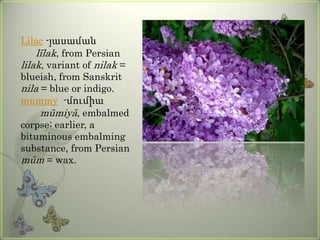

![Safari-šĮšĪųåšĪųĆš½
English is from Swahili language
safari = "journey" which is from
Arabic safar = "journey".
Sugar -šĘšĪųäšĪųĆ
sukkar, sugar. Ultimately
from Sanskritic sharkara = sugar.
Among the earliest records in
English are these entries in the
account books of an abbey in
Durham: year 1302 "Zuker
Marok", 1309 "succre
marrokes", 1310 "Couker de
Marrok", 1316 "Zucar de
Cypr[us]".](https://image.slidesharecdn.com/elenlistofenglishwordsoffrenchorigin-110209155018-phpapp01/85/Elen-list-of-english-words-of-french-origin-21-320.jpg)

